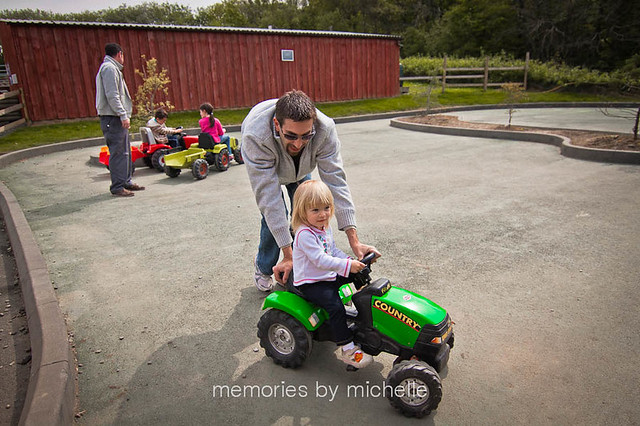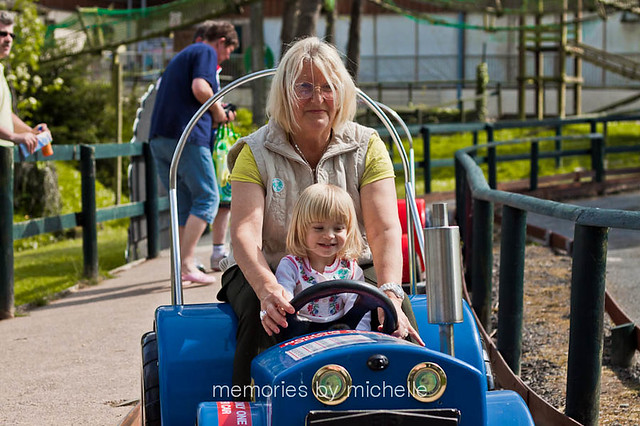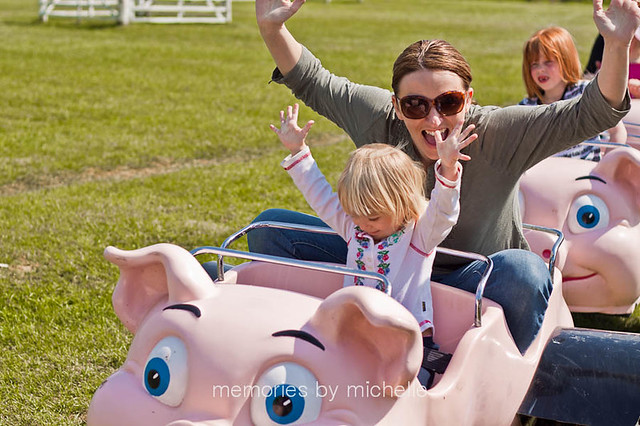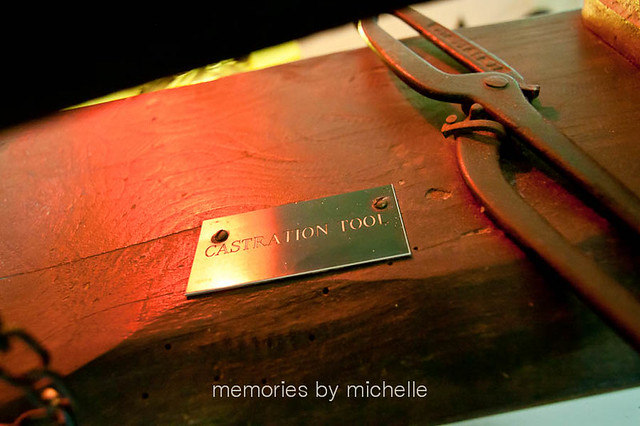The thing I can almost GUARANTEE you don't know about England (unless of course, you live there) is that there is SO MUCH TO DO if you have children. And, being it's a fairly small country (750 miles approximately from top to bottom and, on average, about 125 miles wide), wherever you're at there is always something close by.
One of the most ingrained memories from my childhood was summertime Sunday day trips with my parents. We would jump in the car and start driving, usually with no particular destination in mind. We would ALWAYS find something to do - a pretty village to explore, a summer fair, a castle, a stately home, a steam railway, a Roman ruin, an amusement park, a model village (haha, you've never heard of these have you?) a zoo, a safari or wildlife park, a petting farm... I could go on-and-on...
Most of these activities are relatively low cost and cater to a broad variety of age groups, so there is something for Granny, something for you 13 year old, and something for your toddler.
The Great British Day Out is really something I have missed. I was literally ACHING to share it with Daisy and Hubby.
When we arrived at Trimstone Manor, I immediately grabbed a ton of tourist brochures and set about determining where our first port-of-call would be. It was a difficult task, weeding through everything close by that I thought Daisy would enjoy - and of course, if we were willing to drive more than 90 minutes, there was even more I could have come up with. But given we'd already subjected the poor thing to a 24 hour travel day, I was looking closer-to-home.
Hence THE BIG SHEEP.
You can click the link to learn more about everything this theme park offers but basically it is a young child's fun zone, themed loosely around sheep and farms. I expected it to be an hour visit, maybe two, but we spent ALL DAY there. Daisy had a blast.
There were sheep to pet and feed, up close and personal.


There were fun little rides for Missy to mess around with




And most importantly, there were the bouncing cushions.


... which were even more attractive for being surrounded by a sand pit (sorry yanks, we don't have sand "boxes" in the UK.) Daisy LOVES sand. Or, at least, she does now. We could have done with that enthusiasm a year ago when we were in Jamaica.

It wasn't entirely clear if she loved the pillows or the sand best but it was her favorite spot in the park.
The frustrating thing, however, was watching all the other kids of the same or similar age bouncing around merrily on their own, while Daisy WHINED for me (or, when I forcefully abdicated responsibility, my Mum or husband) to go with her, hold her hand, or pick her up. Hence, it turned into my mission to get Daisy to bounce solo by the time we went home to the U.S. because it really sucks to be the only adult not enjoying a nice sit down while your kid runs off and happily joins in with the other kids.

(Clingyness and whinyness, as we well know, are on the top of my list of mummy no-nos. I just don't do them. Period.)
Just when you're ready to write your kid off as scared of her own shadow and completely unadventurous (yes, I jest... slightly) we head into the awesome indoor play area for lunch and some more fun.
Inside there was this really tall slide. You know, the kind with all the bumps and where you need to sit in a little mat to get from top to bottom? I looked at it and thought: NEVER. But I asked Daisy anyway. She said she would go with me. And so we did, me fully anticipating that we would get to the top and she would balk at the ride down, monkeying on me and screaming blue murder.
But she didn't.

And she went with Daddy too!


And, just like that, my faith in her was restored all over again.
She even went in the ball pit. (Albeit, with Daddy in tow - the only adult in the ball pit.)

If your kid is the sort of kid that naturally runs off to run, jump, climb, slide, swing, or explore, this may not seem like a big thing to you. But Daisy is not like that. Her first word is usually "no" (please, no commentary from my friends - I get the irony) and she is a tad cautious, generally speaking. As an only child, I worry she doesn't have a sibling egging her on and so she'll sit back and not try stuff. This is my BIGGEST parental fear, in fact; that she will let opportunities and experiences pass her by. I know, I gotta let it go a little bit because she is who she is but it doesn't mean to say I can't be happy when I see her try new things and jump in feet-first!
And so BIG SHEEP was a success. I always knew one of the main reasons I wanted to have a kid was to share things with him/her, to look at the world afresh through his/her eyes but I never realized just how amazingly fun and heart-fulfilling it would be to actually do it!
We were only on Day 2 and already the trip was turning out to be everything I hoped it would be, and more.
Tomorrow: Watermouth Castle where there was this....

and where we communed with gnomes.
(Hey, I said there was a lot to do, I didn't say some of it wasn't bizarre!)